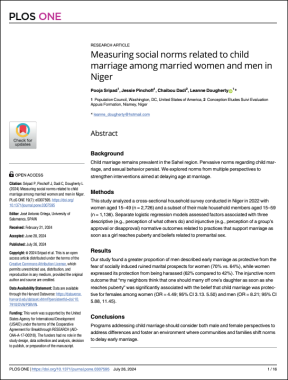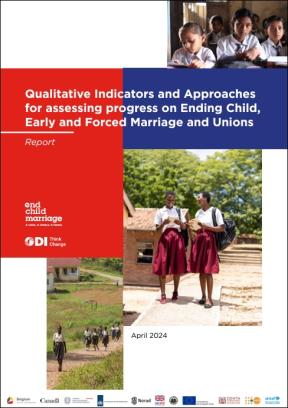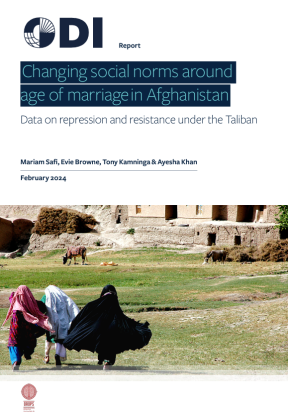- Report
- 1 October 2018
What lies beneath? Tackling the roots of religious resistance to ending child marriage
- Author: Elisabet le Roux and Selina Palm
- Published by: Girls Not Brides

Child marriage results from the interplay of a variety of factors and happens across countries, cultures, ethnicities and religions. There is no single religion that is solely associated with child marriage. But as religious leaders often hold considerable power and authority in their communities, engaging them can be an important part of the range of approaches needed to change attitudes and behaviours related to child marriage.
Girls Not Brides is a global partnership of more than 1000 civil society organisations from over 95 countries committed to ending child marriage and enabling girls to fulfil their potential. Many of these member organisations have been engaging with religious leaders in their efforts to end child marriage. Some leaders have taken action to address child marriage and have been powerful agents of change. However, others have been obstacles to progress and practitioners have faced many challenges in engaging with them.
To support its members in overcoming these challenges, Girls Not Brides commissioned the Unit for Religion and Development Research (URDR) at Stellenbosch University, South Africa, to conduct a study focused on the role of resistant religious leaders in efforts to end child marriage. This report synthesises the study findings. It should however be treated with care, lest its framing reinforce negative stereotypes about the role of religious leaders in perpetuating gender inequality and discrimination.
The focus on resistant religious leaders does not suggest that all religious leaders are resistant to ending child marriage, nor that religions indiscriminately promote child marriage.
- Tags:
- Child marriage
- Countries / Regions:
- Global
Journal article
26 July 2024

Report
8 May 2024

Report
22 February 2024
